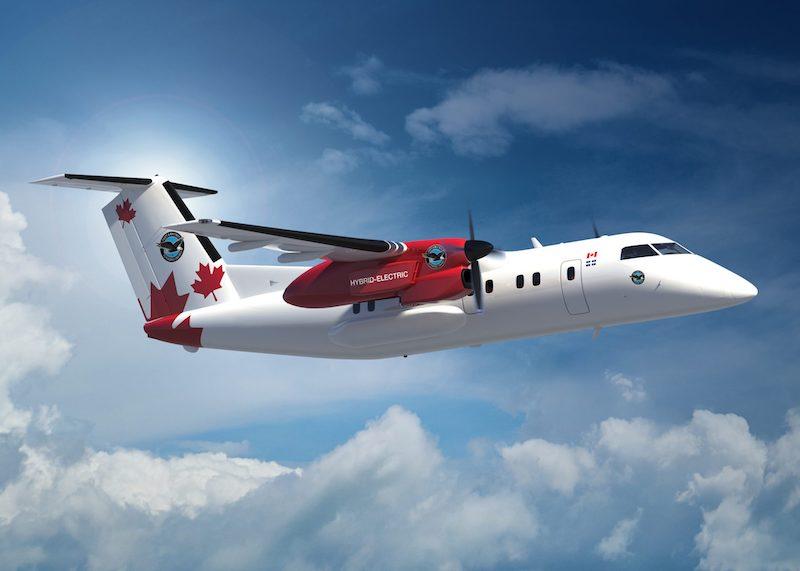
Pratt's HEP flight demonstrator appears unlikely to get off the ground by the end of this year as planned.
FARNBOROUGH—Pratt & Whitney says the complete propulsion system developed for the company’s Hybrid-Electric Propulsion (HEP) flight demonstrator, which is a modified De Havilland Canada Dash 8-100 turboprop, has run at full power for the first time.
The 2-megawatt parallel hybrid-electric powertrain system will replace one of the Dash 8’s two Pratt & Whitney Canada PW120-class turboprops. In addition to the 1-megawatt gas turbine, the system also includes a 1-megawatt, 1-kilovolt electric drive from sister RTX company Collins Aerospace, and a battery system supplied by Swiss startup H55.
“Getting ourselves up to full power is a really important step on the path to getting us [to flight tests],” says Geoff Hunt, senior vice president of Engineering & Technology at Pratt. “What we’re going to be doing now as we go forward is continuing to run the ground test work to build up the aircraft,” he adds.
The 50:50 split between the thermal engine and 1-megawatt electric motor “gives you about a 1,800 shaft horsepower engine,” Hunt says. “And to get that to full power is a real feather in the cap for the team that’s running the program up in Montreal,” he adds.
The test and development work has, however, taken longer than expected and it appears highly unlikely that flight tests will begin by the end of 2024 as previously planned. Baseline flight tests of the unmodified Dash 8 have now been completed, but the modification work is yet to be undertaken. “We’ve got to put it through its maintenance window,” Hunt says. “So as those things come together, I’m sure we’ll be talking more as we get closer to the time on how we’re progressing along that path.”
The bulk of the modified propulsion system will be contained in a Latecoere-developed all-composite, 2 m (6.6 ft.)-long articulated fairing mounted under the starboard wing.





